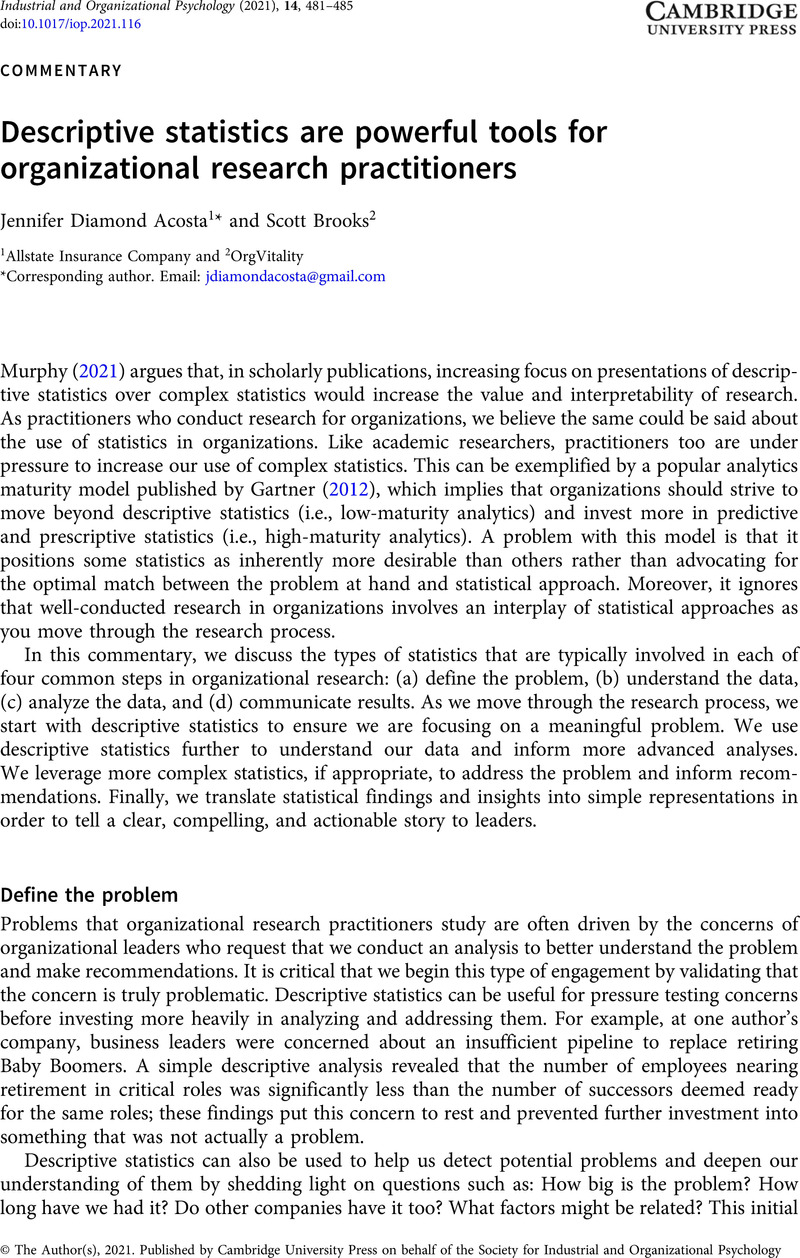No CrossRef data available.
Article contents
Descriptive statistics are powerful tools for organizational research practitioners
Published online by Cambridge University Press: 14 December 2021
Abstract
An abstract is not available for this content so a preview has been provided. Please use the Get access link above for information on how to access this content.

- Type
- Commentaries
- Information
- Copyright
- © The Author(s), 2021. Published by Cambridge University Press on behalf of the Society for Industrial and Organizational Psychology
References
Angrave, D., Charlwood, A., Kirkpatrick, I., Lawrence, M., & Stuart, M. (2016). HR and analytics: Why HR is set to fail the big data challenge. Human Resource Management Journal, 26, 1–11.10.1111/1748-8583.12090CrossRefGoogle Scholar
Bedeian, A. G. (2014). More than meets the eye: Aguide to interpreting the descriptive statistics and correlation matrices reported in management research. Academy of Management Learning and Education, 13, 121–135.10.5465/amle.2013.0001CrossRefGoogle Scholar
Cascio, W., & Boudreau, J. (2011). Investing in people: Financial impact of human resource initiatives. Pearson Education.Google Scholar
Colquitt, A. (2017) Next generation performance management: The triumph of science over myth and superstition. Information Age Publishing.Google Scholar
Murphy, K. (2021). In praise of table 1: The importance of making better use of descriptive statistics. Industrial and Organizational Psychology: Perspectives on Science and Practice, 14(4), 461–477.Google Scholar




